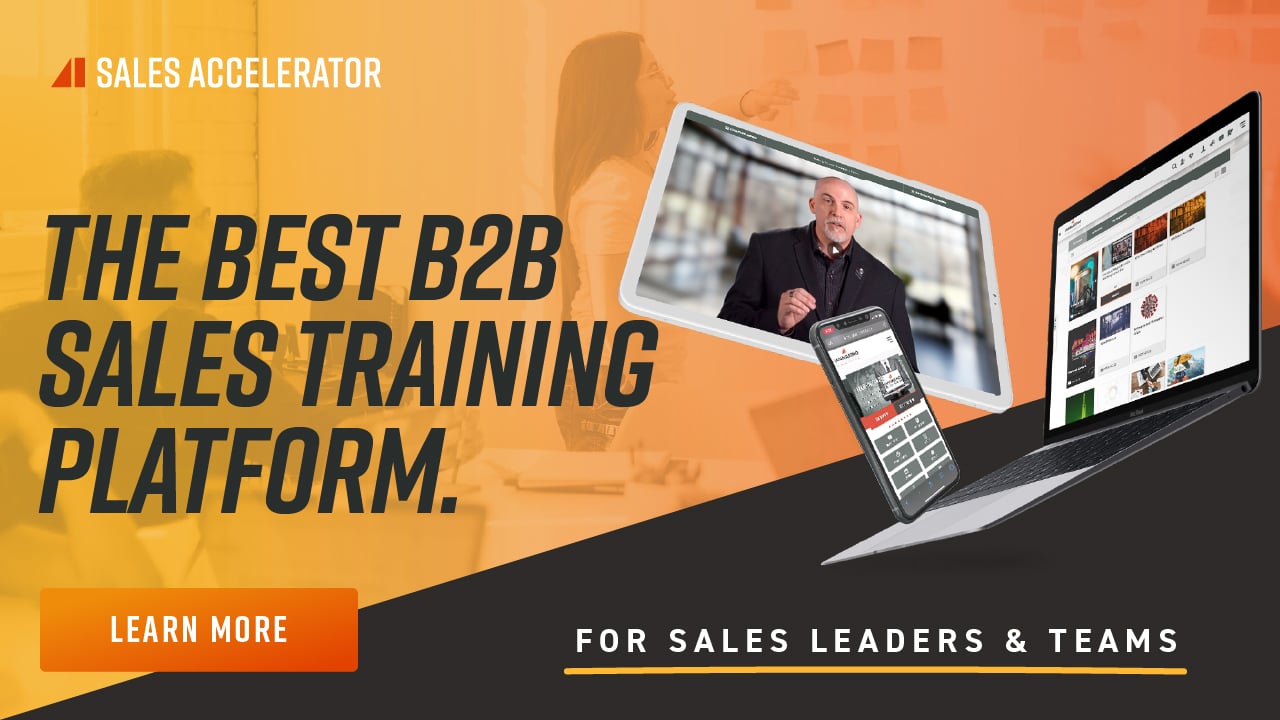The Gist:
- A modern approach to B2B sales often starts with “why change” instead of “why us,” postponing the proof-providing instead of using it to open a sales call.
- Moving the “why us why now ” conversation later is an improvement, but it’s still not likely to result in a preference to buy from you or to improve your company’s chances of winning the deal.
- Winning deals means proving that you and your company are the right choice throughout the sales conversation.

There is general agreement that the sales conversation should follow this pattern: 1) “Why Change?” 2) “Why Now?” and 3) “Why Us?” Perhaps this order developed to distinguish consultative sales from a more transactional approach, one that starts with “why us why now.” Being agile means you work with your client where you find them, but starting by exploring change is better than starting with a long diatribe on the wonder of wonders that is your exceptional, best in class, award-winning, and more-than-deserving-of-partnering-with- company.
As a B2B salesperson, you have exactly two ways to explain why your client should buy from you. The first strategy is to tell your prospective clients, repeatedly, that your company is the absolute right choice to provide all the results they need. The second strategy is to prove your value through the sales conversation—a far better choice, even if it distresses your marketing or communications department.

Why You Are a Bad First Date
The transactional approach to sales, one in which the salesperson is obligated to try to close the deal in the first meeting, starts with “why us” as a way to create confidence for the salesperson, allowing them to rely on their company’s story and their own bona fides so they can pitch their product and attempt to acquire a contract. In some transactional sales this can be an effective approach, even if you or I might make it a bit more consultative.
But think of it this way: you wouldn’t start a romantic evening by telling your date your age, your income, the degrees you earned in college, your GPA, the fact that you have an amazing sense of humor, the size of your house, and a list of your previous boyfriends or girlfriends who very much enjoyed your company. Your date would be disappointed, not because your “qualifications” were lacking but because they were hoping that you might be interested in them.
Maybe you’re too savvy to start a first date—or a first sales meeting—that way. But no matter when you throw in that braggadocious proof-providing, if you sing your company’s praises as a way to convince your client to buy from you, you’re missing the point. The whole idea is to prove your company is the right choice for your dream client’s change initiative.

Don’t Tell Me, Show Me
The best way to prove that you are the right person to buy from and that your company is a good choice of partner is to show your client what it’s going to be like to work with you and your company. Let’s imagine three whys sales salespeople are pursuing the same prospective client. Salesperson 1 shows up and tells the client that their company is great, that they have the best solution in the business, and that there is no safer decision than choosing their company. Salesperson 2 does a little discovery, gains rapport, and then tells the decision-makers that their company is exceptional, has the best solution available, and that there is no better choice available in the known Universe.
Salesperson 3 is different. She is interested in understanding exactly why the client is considering change. This salesperson spends her time providing the client with an understanding of the factors that have made their approach untenable, supporting her assertions and perspective with data. As the conversation continues, the salesperson works to include the stakeholders who are going to be affected by any decision, from the end user to the executive leader sponsoring and paying for the solution, so she can understand their needs and concerns.
Rather than just pushing her solution, Salesperson 3 teaches these stakeholders about the different models people use to produce the results the company needs, helping them to understand the different choices available to them. She then explains why the recommendation she is making is the right choice and what changes her company is going to make to ensure that solution fits the client’s needs and is something they can execute. Even though she has already included subject-matter experts from her team in the discovery calls, she brings them back for the final presentation, to make certain there is no concern left unresolved in the end. The last slides of her deck say nothing about her company. Instead, they explain why the solution is right.
The very best way to prove that your company is the right choice for your client is to prove it throughout the sales conversation.
My Slide Deck
For a very long time, I carried a slide deck where the first eight slides answered “why us?” None of my clients actually cared about “our story,” though, which I know because they never had any questions or comments about those slides. They did, however, ask a lot of questions about our processes. At the time, I never carried anything into a sales call other than a pen and a legal pad: the tools of a professional, consultative salesperson. Occasionally, I might bring a couple business cards, but even that wasn’t certain. I never carried any sales collateral, knowing full well that my contacts wouldn’t so much as look at it, let alone read it.
You only need two things to answer “why us”: the intention to serve your contacts by helping them make the right decisions necessary to improve their results, and the three whys sales-pound pinkish gray mass between your ears—provided you have filled it with the business acumen, situational knowledge, insights, and perspective, all the things you need to cause your contacts to choose you.
But enough about that. Did you know that I graduated summa cum laude from Capital University, with a 3.93 grade point average and degrees in Political Science and English Literature. . .hey, where are you going?!
Do Good Work:
- What crutch do you use to create credibility in the conversation that doesn’t create any value for your contacts?
- How do you create value for your clients in excess of what they might experience from another salesperson?
- How can you answer the question “why us” by proving that you are the right choice within the sales conversation?









.jpg?width=768&height=994&name=salescall-planner-ebook-v3-1-cover%20(1).jpg)


